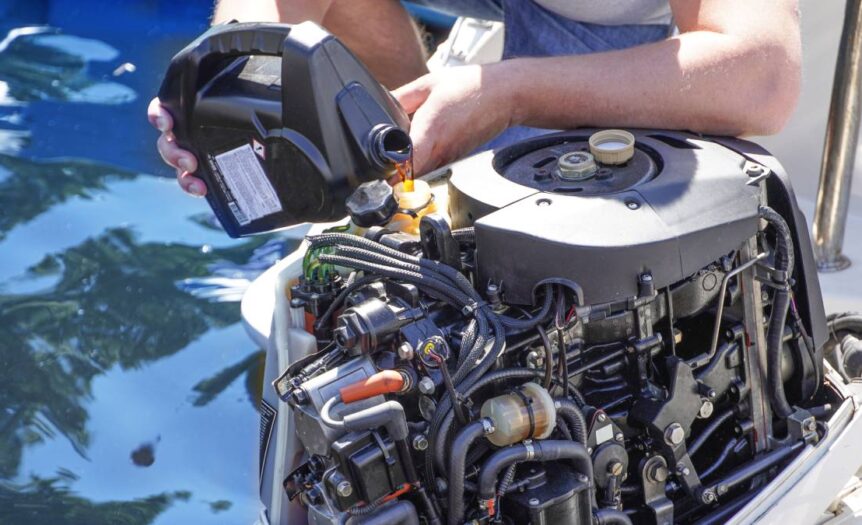Selecting fuel for your boat can affect its performance, longevity, and even maintenance costs. With all the fuel options available, however, you might need some pointers on what’s best for your vessel. Let’s look at tips for buying the best fuel for your boat and how to make an informed decision.
Consider Your Boat’s Motor
The fuel should be compatible with your boat’s motor. Using the wrong fuel can cause severe damage. For example, a diesel-powered marine motor won’t function properly with gasoline. Before purchasing fuel, consult your owner’s manual or speak to a professional to determine the appropriate type for your boat.
Check the Octane Rating
The octane rating represents the fuel’s resistance to knock, which is an uncontrolled ignition of fuel in the combustion chamber. The higher the octane rating, the more resistant it is to knocking. However, not all boats require high-octane fuel; some perform better with low-octane fuel. Again, refer to your owner’s manual or speak to a professional for guidance on the appropriate octane rating for your boat.
Know Your Boat’s Fuel Capacity
It’s essential to know how much fuel your boat can hold and how much it consumes per hour. This information will help you determine the most cost-effective option for refueling. For example, if your boat consumes 20 gallons per hour and has a 100-gallon capacity, it may be more efficient to purchase fuel in bulk rather than making frequent trips to the pump.
Explore Ethanol Blends
Ethanol is a common fuel additive that can improve motor performance and reduce emissions. However, not all boats can run on ethanol blends. Check your boat’s compatibility before purchasing fuel with ethanol additives. Additionally, ethanol can absorb moisture, leading to corrosion and damage if not used quickly.
Be Mindful of Storage Conditions
When storing your boat for an extended period, you must fill it with fuel that won’t deteriorate or cause damage during disuse. Gasoline has a shorter shelf life than diesel, so add a fuel stabilizer when storing your boat for more than 30 days. Also, store your boat in a well-ventilated area and away from direct sunlight, as heat and moisture can affect the quality of the fuel.
Buying the optimal fuel for your boat involves more than filling up the tank and setting sail. Using low-quality fuel is one of the many mistakes you should avoid when using an outboard motor, as it can result in costly repairs or even a breakdown at sea. By following these tips, you can ensure your boat’s motor runs smoothly, and you can enjoy your time on the water!










 Deering Estate
Deering Estate
 Massage Envy South Miami
Massage Envy South Miami
 Calla Blow Dry
Calla Blow Dry
 My Derma Clinic
My Derma Clinic
 Sushi Maki
Sushi Maki
 Sports Grill
Sports Grill
 The Healthy Kitchen
The Healthy Kitchen
 Golden Rule Seafood
Golden Rule Seafood
 Malanga Cuban Café
Malanga Cuban Café

 Kathleen Ballard
Kathleen Ballard
 Panter, Panter & Sampedro
Panter, Panter & Sampedro
 Vintage Liquors
Vintage Liquors
 The Dog from Ipanema
The Dog from Ipanema
 Rubinstein Family Chiropractic
Rubinstein Family Chiropractic
 Your Pet’s Best
Your Pet’s Best
 Indigo Republic
Indigo Republic




 ATR Luxury Homes
ATR Luxury Homes


 2112 Design Studio
2112 Design Studio
 Hamilton Fox & Company
Hamilton Fox & Company
 Creative Design Services
Creative Design Services
 Best Pest Professionals
Best Pest Professionals
 HD Tree Services
HD Tree Services
 Trinity Air Conditioning Company
Trinity Air Conditioning Company
 Cisca Construction & Development
Cisca Construction & Development
 Mosquito Joe
Mosquito Joe
 Cutler Bay Solar Solutions
Cutler Bay Solar Solutions


 Miami Royal Ballet & Dance
Miami Royal Ballet & Dance
 Christopher Columbus
Christopher Columbus
 Pineview Preschools
Pineview Preschools
 Westminster
Westminster
 Carrollton
Carrollton
 Lil’ Jungle
Lil’ Jungle
 Frost Science Museum
Frost Science Museum
 Palmer Trinity School
Palmer Trinity School
 South Florida Music
South Florida Music
 Pinecrest Orthodontics
Pinecrest Orthodontics
 Dr. Bob Pediatric Dentist
Dr. Bob Pediatric Dentist
 d.pediatrics
d.pediatrics
 South Miami Women’s Health
South Miami Women’s Health

 The Spot Barbershop
The Spot Barbershop
 My Derma Clinic
My Derma Clinic




 Miami Dance Project
Miami Dance Project

 Rubinstein Family Chiropractic
Rubinstein Family Chiropractic
 Indigo Republic
Indigo Republic

 Safes Universe
Safes Universe
 Vintage Liquors
Vintage Liquors
 Evenings Delight
Evenings Delight





 Atchana’s Homegrown Thai
Atchana’s Homegrown Thai
 Baptist Health South Florida
Baptist Health South Florida

 Laser Eye Center of Miami
Laser Eye Center of Miami
 Visiting Angels
Visiting Angels
 OpusCare of South Florida
OpusCare of South Florida

 Your Pet’s Best
Your Pet’s Best





 HD Tree Services
HD Tree Services
 Hamilton Fox & Company
Hamilton Fox & Company


 Creative Design Services
Creative Design Services